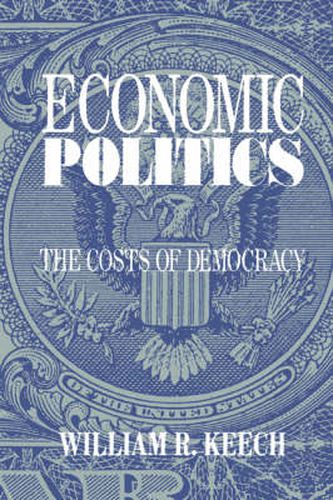Readings Newsletter
Become a Readings Member to make your shopping experience even easier.
Sign in or sign up for free!
You’re not far away from qualifying for FREE standard shipping within Australia
You’ve qualified for FREE standard shipping within Australia
The cart is loading…






This book raises and addresses questions about the consequences of democratic institutions for economic performance. Do institutions of accountability inside and outside government through periodic elections produce efficient results, or do they lead to the kind of accumulation of special privileges and protections from market competition that reduces efficiency and growth? Professor Keech suggests that there are modest and bearable costs of democratic procedures, comparable to the agency costs incurred whenever a principal delegates authority to an agent. Democracy, however, does not systematically cause inferior macroeconomic policy detrimental to a population’s long-term welfare. Rather, there is a logical circularity among voter preferences, institutions, and economic and political outcomes. This accessible synthesis and sharp perspective on a large topical literature will be highly useful for professionals, graduate students, and upper-level undergraduates aiming to understand the relationship between politics and economics.
$9.00 standard shipping within Australia
FREE standard shipping within Australia for orders over $100.00
Express & International shipping calculated at checkout
This book raises and addresses questions about the consequences of democratic institutions for economic performance. Do institutions of accountability inside and outside government through periodic elections produce efficient results, or do they lead to the kind of accumulation of special privileges and protections from market competition that reduces efficiency and growth? Professor Keech suggests that there are modest and bearable costs of democratic procedures, comparable to the agency costs incurred whenever a principal delegates authority to an agent. Democracy, however, does not systematically cause inferior macroeconomic policy detrimental to a population’s long-term welfare. Rather, there is a logical circularity among voter preferences, institutions, and economic and political outcomes. This accessible synthesis and sharp perspective on a large topical literature will be highly useful for professionals, graduate students, and upper-level undergraduates aiming to understand the relationship between politics and economics.